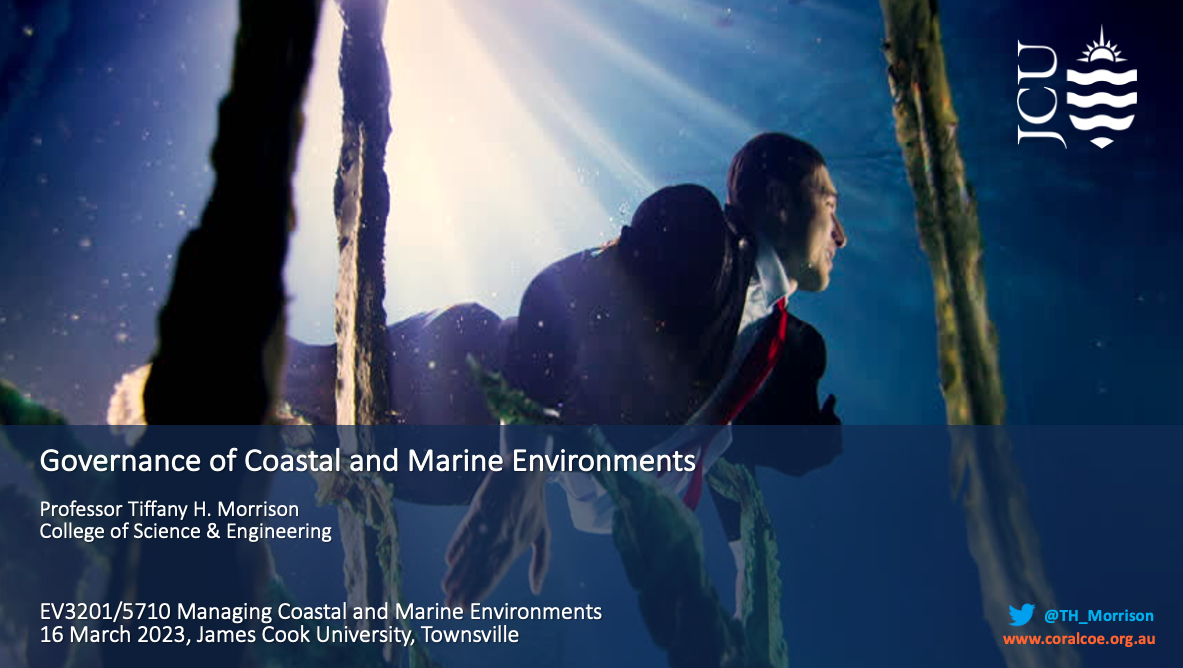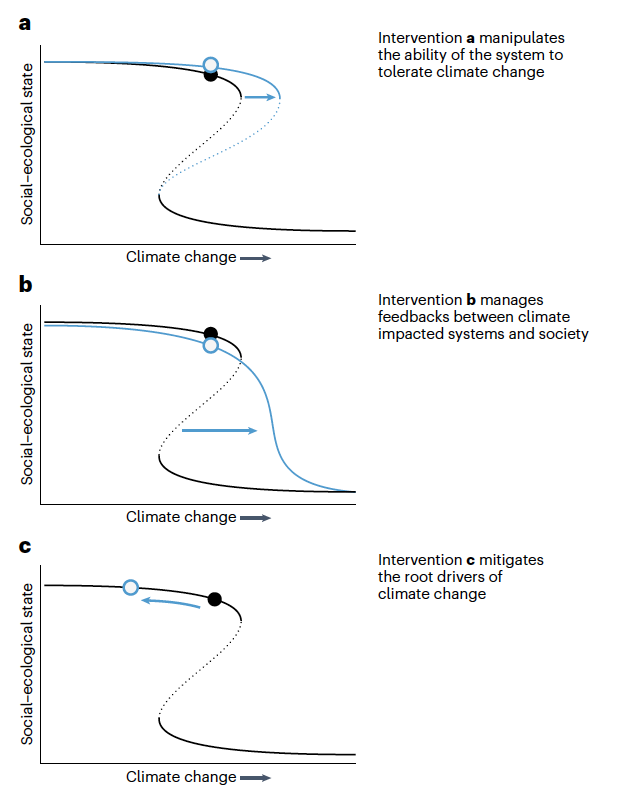We teach into popular undergraduate and postgraduate subjects on climate politics and marine policy at University of Melbourne and James Cook University:
This subject introduces and analyses critical concepts and terms central to debates over climate change, including risk and uncertainty, adaptation and mitigation, burden sharing, and problems and issues relating to regimes, policy strategies, instruments and interventions.
We examine how debates about radical climate intervention invoke at least six different interpretations of ‘radical’. These different interpretations can be viewed as a typology, with each type reflecting the extent to which the intervention disrupts the status quo to address the root drivers of climate change.
For study information, see: https://study.unimelb.edu.au/study-with-us/graduate-courses
This lecture examines the impacts of human activities on coastal and marine environments. It explores the complex relationships among the ecological and social values of these environments and outlines strategies and tools for their management.
We examine how different marine climate interventions can shift thresholds to avoid (or trigger) transitions (a), manipulate feedbacks to change the shape of the equilibrial relationship between drivers and system state (b), or reduce climate change drivers to avoid transgressing thresholds (c). Importantly, modifying thresholds and feedbacks (a and b) to tackle proximate impacts and causes will rarely have lasting or meaningful system effects unless the root drivers of climate change are also addressed (c).
For study information, see: https://www.jcu.edu.au/courses/study/marine-science
System effects of common climate interventions (Morrison et al. (2023) Nature Climate Change).
Typology of climate interventions ( Morrison et al. (2023) Nature Climate Change).
Global surface temperature average, March 23, 2023, 08:00 AM.




